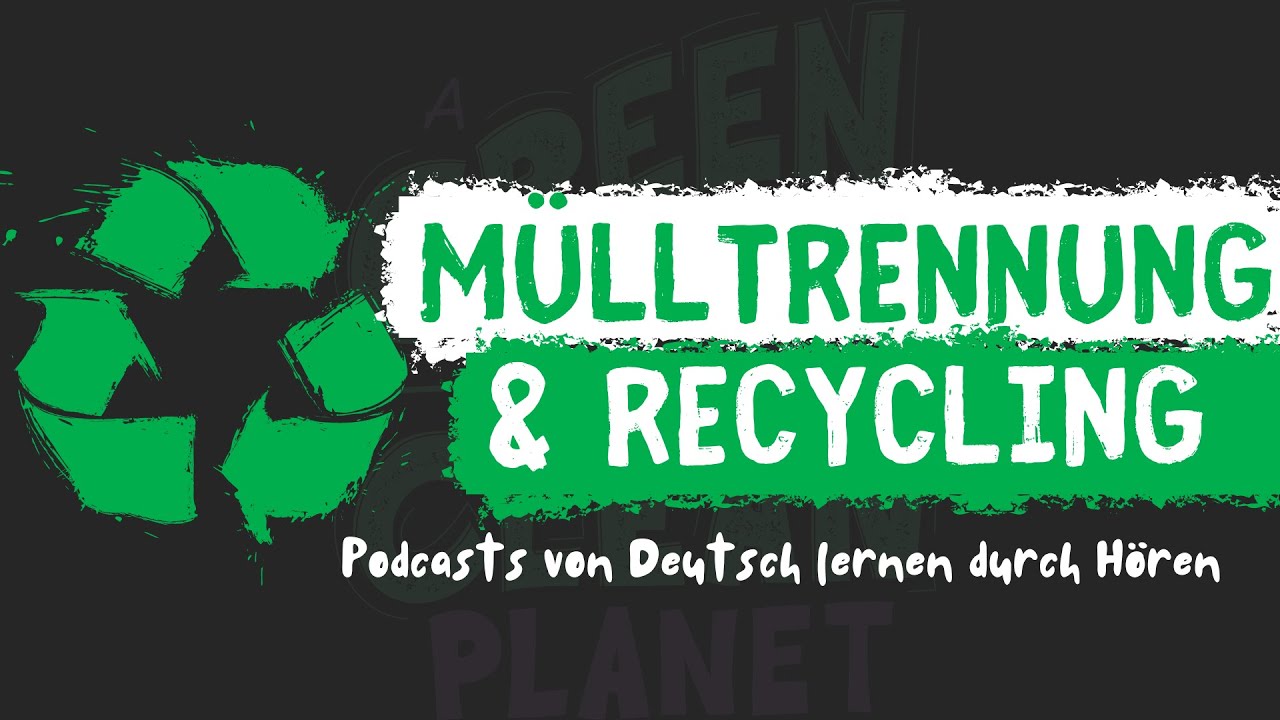Why is it so hard to recycle plastic? - People Fixing the World, BBC World Service
Summary
TLDRThe script discusses the complexities of plastic recycling compared to glass, highlighting the issue of 'downcycling' where plastic quality degrades with each cycle, often ending in landfills or incineration. It introduces a French company's innovative method of recycling PET plastic without quality loss, using enzymes to break down and purify it into reusable components. Although currently more expensive, the company plans a factory to process billions of bottles annually, potentially making plastic recycling as efficient as glass.
Takeaways
- 🚮 Recycle glass easily turns into new glass, unlike plastic which degrades with each recycling process.
- 🔄 Plastic recycling often results in downcycling, where the material quality diminishes and eventually ends up in landfills or incineration.
- 🌐 The continuous production of new plastic requires more fossil fuels, contributing to environmental issues.
- 🇫🇷 A French company has innovated a method to recycle PET plastic without quality loss, a significant breakthrough in plastic recycling.
- 🔪 The process involves shredding plastic from bottles and polyester clothes before further treatment.
- 🧪 The recycling method uses water, special enzymes, and big vats to break down the plastic into its base components.
- ♻️ The resulting substances from this process are the building blocks for new PET plastic, mimicking the 95 to 97% of global PET production.
- 🌱 Traditional PET producers could use these recycled components instead of petro-sourced ones, promoting a circular economy.
- 💰 Currently, this innovative recycling method is more expensive than conventional plastic recycling.
- 🏭 The company is constructing a factory with the capacity to process two billion plastic bottles annually, indicating potential for scalability.
- 💭 The speaker suggests that the value of recycling efforts might not be adequately recognized or compensated.
Q & A
What is the primary issue with recycling plastic compared to glass?
-Plastic recycling, or 'downcycling,' results in a decrease in quality with each cycle, unlike glass which can be infinitely recycled without degradation.
What is the term used to describe the process where the quality of recycled material decreases with each cycle?
-The term is 'downcycling'.
What happens to materials that can't be recycled effectively?
-Ineffectively recycled materials often end up in landfills or are incinerated.
How does the French company's recycling process for PET plastic differ from traditional recycling methods?
-The French company uses a method that involves shredding plastic and polyester materials, adding water and special enzymes to break them down, and then removing additives to retrieve the building blocks for new PET plastic without losing quality.
What are the two main substances produced by the French company's recycling process that are used as building blocks for new PET plastic?
-The process yields two main substances which are not specified in the transcript but represent the core components for PET production.
What percentage of the world's PET production does the French company's process aim to replace with recycled materials?
-The process aims to replace 95 to 97% of the PET production with recycled materials.
How does the use of recycled PET building blocks differ from the traditional petro-sourced components?
-Recycled PET building blocks are made from waste materials, reducing the reliance on fossil fuels compared to petro-sourced components.
What is the current limitation of the French company's plastic recycling method?
-The method is currently more expensive than traditional plastic recycling.
What is the scale of the factory that the French company is building to process recycled plastic?
-The factory is designed to process two billion plastic bottles every year.
What is the potential future impact of the French company's recycling method on the ease of plastic recycling?
-The method could potentially make recycling plastic as easy as recycling glass if the cost and efficiency issues are addressed.
What is the speaker's opinion on the current compensation for recycling efforts?
-The speaker believes that the current compensation for recycling efforts is not sufficient.
Outlines

Dieser Bereich ist nur für Premium-Benutzer verfügbar. Bitte führen Sie ein Upgrade durch, um auf diesen Abschnitt zuzugreifen.
Upgrade durchführenMindmap

Dieser Bereich ist nur für Premium-Benutzer verfügbar. Bitte führen Sie ein Upgrade durch, um auf diesen Abschnitt zuzugreifen.
Upgrade durchführenKeywords

Dieser Bereich ist nur für Premium-Benutzer verfügbar. Bitte führen Sie ein Upgrade durch, um auf diesen Abschnitt zuzugreifen.
Upgrade durchführenHighlights

Dieser Bereich ist nur für Premium-Benutzer verfügbar. Bitte führen Sie ein Upgrade durch, um auf diesen Abschnitt zuzugreifen.
Upgrade durchführenTranscripts

Dieser Bereich ist nur für Premium-Benutzer verfügbar. Bitte führen Sie ein Upgrade durch, um auf diesen Abschnitt zuzugreifen.
Upgrade durchführenWeitere ähnliche Videos ansehen

Entire Recycling Process Explained

#31 Mülltrennung & Recycling in Deutschland | Deutsch lernen durch Hören

Apa Benar Jerman Juaranya Recycle Sampah Plastik? | #PlanetA

How we can stop the flow of plastic pollution into our oceans? | Tim Niemier | TEDxMeritAcademy

Come viene riciclata la plastica? Il ciclo di vita dei rifiuti: raccolta, smaltimento e riuso

CARA MEMILAH SAMPAH ORGANIK DAN ANORGANIK
5.0 / 5 (0 votes)
